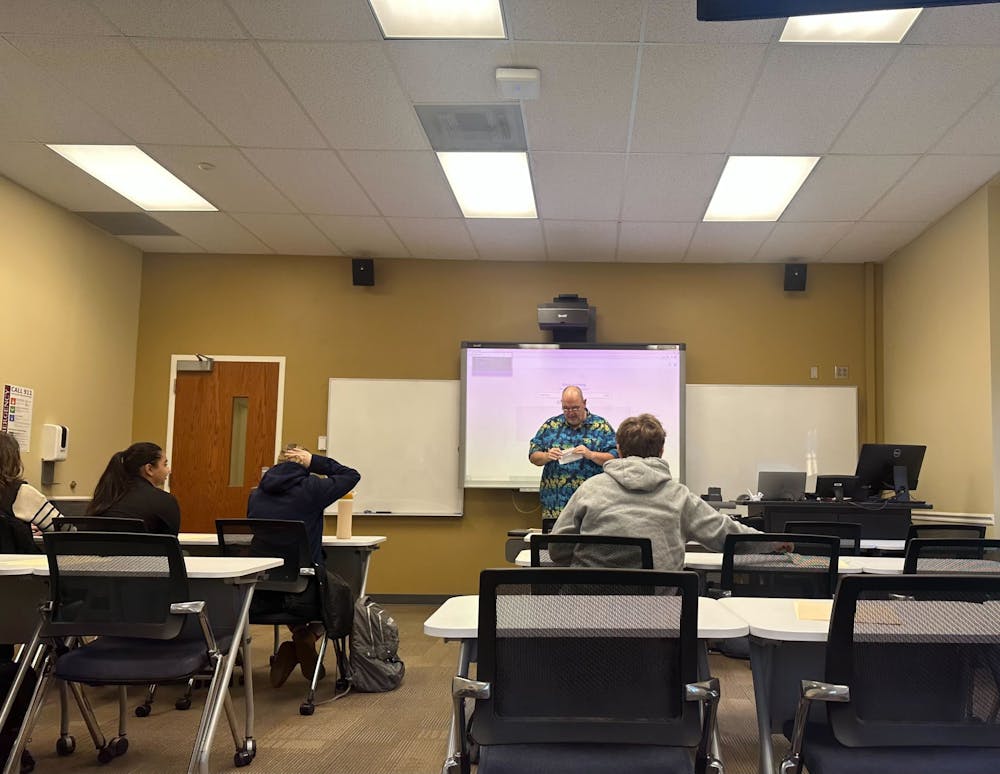Allen Russell, a professor of mathematics, has recognized a shift in campus mental health. Russell has been teaching at Elon for 27 years. While he saw its presence, he said mental health didn't appear to be a larger issue on campus until the 2000s.
Russell himself struggled with anxiety during his return to campus after teaching virtually, and he believes that many students share in this experience. He has encountered students in tears stressed about "college life," he said.
Some professors at Elon University have begun to recognize an increase in mental health issues among students, including Russell. Overall, these professors recommend the university counseling services and student outreach programs more frequently than before. There is a concern about the demand for mental health resources compared to the student counseling services capacity, he said.
"Now, you talk to students and they seem to be constantly functioning at this much greater level of anxiety and sometimes depression than we have ever seen before," Russell said.
Sociology professor Karen Wirth attributes the uptick in the need for mental health resources partially to the COVID-19 pandemic.
"I think a lot of things changed with COVID, the way we think about mental health has changed," Wirth said. "As professors, we think that we are looking at first-year college students, but you can't look at it like that, these are first-year college students who lost critical years in high school."
Russell said he tries to present a welcoming environment where students can feel comfortable coming to him. However, he recognizes when issues escape his realm of expertise.
"You can do a lot of damage, playing around with counseling when you don't know what you're doing," Russell said.
Elon E-alerts are automated notifications sent to students from the university. These can be mass alerts about extreme weather or an individual alert that a student has had a repeated number of absences in a course. Care and concern forms are reports made by students, staff or professors to express a concern about a student academically, physically or mentally. Both care and concern forms and E-alerts contact the student directly by email.
Wirth said a student took an incomplete in her course and returned home due to mental health issues. She worked with the student over Zoom, when they were planning on eventually returning to campus. This did not end up happening, but Wirth did her best to help the student.
Through this experience, she has learned which resources yield better results for her and her students. She said she has had better follow-up with care and concern forms versus E-alerts.
Matt Blomberg, assistant professor of journalism, has submitted student concern forms in the past and found them easy to navigate.
Faculty have access to courses that help them learn about mental health resources on campus and how to use them to help students, Blomberg said.
It is a "manpower" issue, and Russell said that the student counseling service needs more people.
Blomberg also said that it seems the number of students requiring services outweighs the services' capabilities.
Despite this, Russell said professors are here to support students with the resources they are provided.
"I have always presented a face that even if you are struggling in some other place with somebody else, you can always come to talk to me about it," Russell said.
If you or someone you know is struggling, resources are available on the student counseling services website at https://www.elon.edu/u/health-wellness/counseling-services/ or by phone at (336) 278-7280. 24/7 support is also available through the TimelyCare app.


